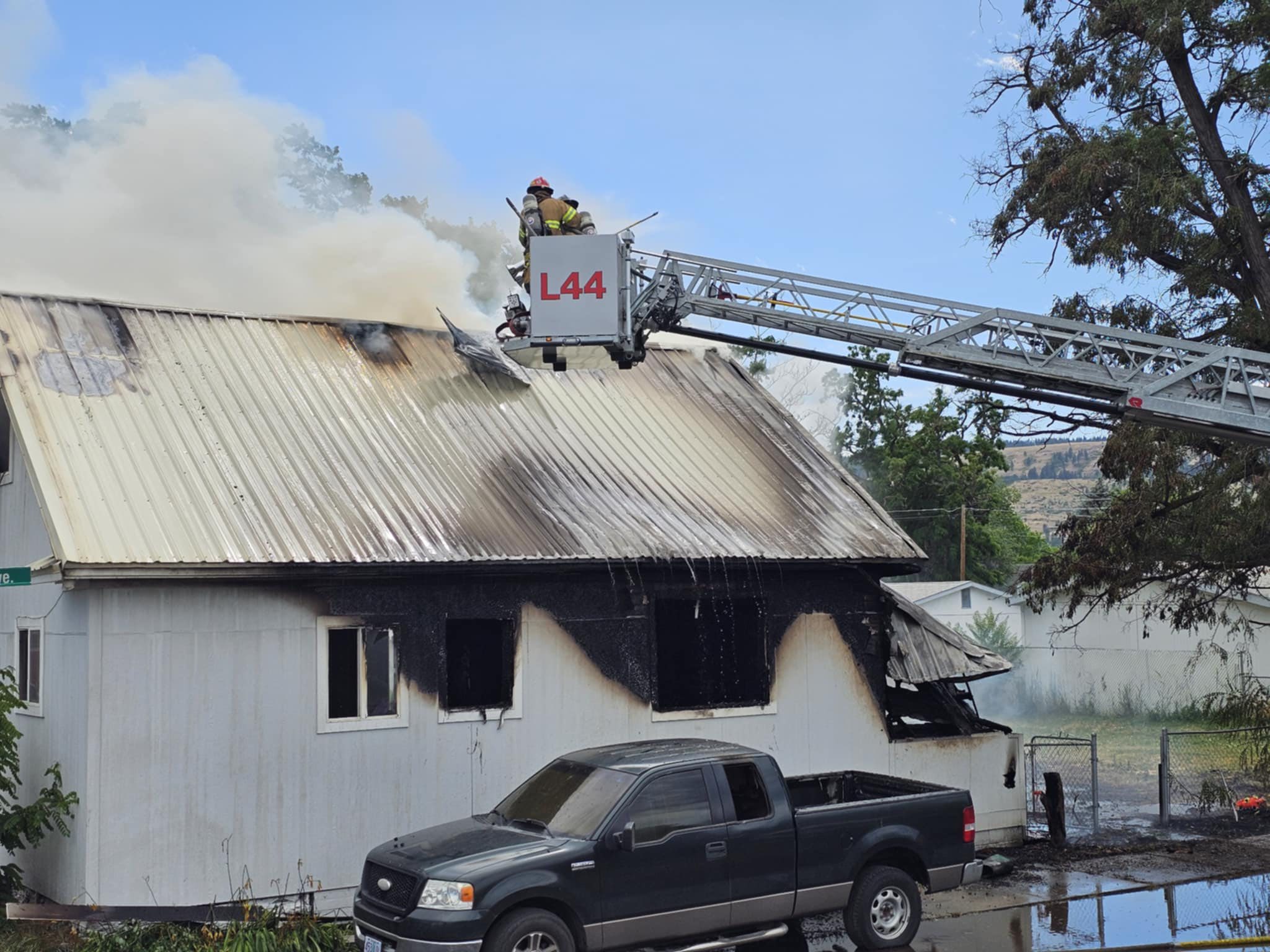Wolf packs stress Eastern Oregon livestock, ranchers
Published 8:00 am Thursday, April 4, 2024

- Dorran
PENDLETON — At least one local politician and experts working in the livestock industry say the damage wolves do is devastating to ranchers as well as their livestock.
That could be part of the discussion of Rep. Cliff Bentz’s listening session on wolves Thursday, April 4, in Pendleton.
Bentz, R-Ontario, announced he is holding the session with members of the ranching community and state and federal officials. This event is open to the public.
Umatilla County Commissioner Dan Dorran, who with two other members of the county’s Wolf Depredation Advisory Committee, attended a training a couple months ago on how to identify characteristics of a wolf attack on livestock. He said some ranchers find the process of obtaining compensation for wolf depredation cumbersome, lengthy and of little value.
“I think some producers have given up on the compensation program because they feel it’s not equitable at all,” Dorran said. “It’s not just the killing of the animal. It’s the lack of gain due to stress on the animals. There are some people that have historical calving in the 85-90% range and higher, that are now calving at 70% because of the stress.”
The Legislature in 2011 created the Wolf Depredation Compensation and Financial Assistance Program to provide grants to counties where wolves are present. Grants can cover the losses of dead, injured or missing livestock, as well as nonlethal prevention.
Rep. Bobby Levy, R-Echo, in the 2024 legislative session introduced House Bill 4107 to provide ranches up to seven times the value of livestock killed by wolves, a concept reprised from previous compensation debates.
According to testimony Levy provided on the bill, Umatilla County in 2023 asked for $129,163 in state wolf depredation compensation, the most of any county, but received $75,803. Baker County was No. 2, asking for $86,135 but receiving $72,900.
Levy’s bill died in committee. Dorran said he hopes Levy brings back the proposal in the 2025 session.
“I think one of the things I’ve learned is that just by the indicators I personally believe the number of wolves we count in Umatilla County is nowhere near the real total,” Dorran said. “I don’t think we have a good handle on the total number of wolves like when we had them all collared.”
John Williams, of Enterprise, is the co-chair of the wolf committee of the Oregon Cattlemen’s Association. He said wolves have expanded into most of the Blue Mountains.
“That would be in Wallowa County, Crook County, Union County, the eastern part of Umatilla County, in the forested part,” he said.
There may be fewer wolves in Morrow County due to the wide expanses of agricultural land. The Oregon Department of Fish and Wildlife investigated a depredation on March 26 along Balm Creek on private land in Morrow County and determined wolves were responsible for killing the 3-month-old calf.
“Wolves don’t just stay in the forest,” Williams said. “Wolves need two things, they need food and they need tolerant people. And the tolerant people don’t affect where they go, they affect the politics around them, but the food determines where they’re at.”
He said wolves can travel 30 miles in six hours.
“A 500 mile walkabout in about a week is nothing,” Williams said. “You’ll find a wolf kill, and that wolf may be 50 miles away by the time you find it the next morning. These things are 5-and-a-half, 6-feet long, and just eat up the country for hours on end and never get breathing hard.”
Wolves are phenomenal animals, he said, and operate on a scale like no other.
“If they only weren’t eating our livestock and our wildlife, they’d be a great animal to have, but they are causing massive devastation,” he said.
Williams also said dead ranch animals are the least of ranchers’ problems. Wolves cause a reduction in weaning weights, a reduction in consumption rates and an increase in management costs.
“We have a decrease in the body condition score of the cow in the fall, meaning how fat she is. She’s not in condition to have calves. So you have to spend a lot of money to get her back up to the right body condition before calving. Wolves are very, very expensive to ranchers.”
Mark Kirsch is the director of the John Day Watershed for the Oregon Department of Fish and Wildlife. He said some wolf packs are more aggressive and more tuned in to livestock than others.
“If you get a pack that seems to figure out livestock, they’re much more problematic,” he said. “If you have a pack making most of their living off wild ungulates, deer and elk, they’re less of a problem.”
But each year, Kirsch said, there is some level of conflict between livestock producers and wolves or some level of loss for producers, and ODFW has to respond to those problems as they come in.
Dorran said ranchers are frustrated with the means the state allows them to deal with wolves. He said one young ranching couple have “one of the toughest grazing permits” and work 24 hours a day to keep wolves away.
“I don’t know how they have survived, to be honest with you,” he said. “They lose cattle. They don’t have time to fill out the reports that are needed to get compensated, which is very minuscule compared to the loss. I’m not saying it’s any easier on larger ranchers, but it is really tough on small ranchers for sure.”
Rep. Cliff Bentz, R-Ontario, is holding a listening session on wolves Thursday, April 4 in Pendleton. The event begins at 2:30 p.m. at the Pendleton Convention Center, 1601 Westgate.
Bentz will hold the session with members of the ranching community, U.S. Department of Agriculture, U.S. Forest Service and Oregon Department of Fish and Wildlife. This event is open to the public.









